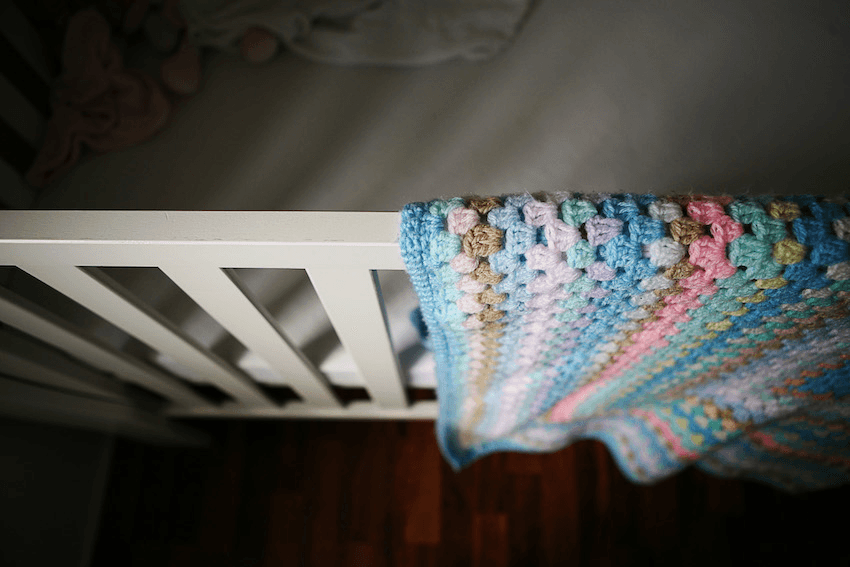It’s a podcast almost four years in the making on a topic ‘shrouded in silence’. Emily Writes speaks to Susie Ferguson about The Unthinkable.
Susie Ferguson is talking about something I desperately don’t want to talk about. Baby death or stillbirth is a heart-breaking subject that many of us instinctively turn away from. Ferguson didn’t turn away. She spent three and a half years working on a podcast to bring it out into the open. The project is personal – five of her friends lost babies in five years in the same city.
“The first time it happened I was really shocked. I remember saying to my husband, ‘Babies don’t die. Not nowadays. They died hundreds of years ago. Not now.’”
Over time, she has seen the pain caused by society’s inability to discuss the topic.
“I started looking at the statistics and this happens to 600 to 700 families a year in New Zealand. It’s twice the road toll. How much money and effort is there in the government response to how many people die on the roads? And there should be! There shouldn’t be people dying on the roads. But at the same time, what are we doing for all of the families who are left bereft? Who leave the hospital or birthing centre after having a pregnancy and they haven’t got a child.”
“It happens an awful lot more than we like to think about,” she says. “Society just doesn’t talk about it. It goes against what we think is the natural order of things. Older people die and we can work out how to make sense of that by saying they had a good innings. But we don’t know what to say about baby death.”
The Radio New Zealand podcast is about the human cost. A cost that has been visited upon many, many families for many, many years.
“It’s humanity itself,” Ferguson says. “It’s been happening for generation after generation. Our current situation, in terms of how we don’t give it notice, it’s not healthy.”
Since Ferguson began working on the podcast, many grieving parents have shared their stories with her. It’s easy to imagine her listening, making a cup of tea, genuinely hearing someone.
When you listen to The Unthinkable you hear a journalist with an astounding ability to make people comfortable. Comfortable enough to share the worst days, weeks, months of their lives.
As she talks about society’s inability to face baby death, Ferguson explains how easy it is to just listen.
“You just need to let people tell their story and let them open up. They need someone to just sit with them and let them speak. You need to show kindness – you don’t need a great big list of questions. You just say – tell me about your son, tell me about your daughter.”
This should be easy for people, but few can get the mix of empathy and care right. Ferguson does. When you listen to The Unthinkable you are learning how to hold space for others. You’re learning how to support someone through an impossible tragedy. It is a peek into another world, a lifting of the veil, and you’re being asked to stay. And listen.
“As long as we keep it a silent, under-wraps issue that we’re too frightened to talk about, we’ve got hundreds and hundreds, thousands of families that are grieving and they’re grieving in a society that doesn’t really understand them and doesn’t really know what to do.”
The Unthinkable encourages us to do what we thought we didn’t know how to do. It calls on us to just listen and see these babies, to appreciate and be grateful for their contribution to the lives of their loved ones.
In the first episode we hear the powerful story of Wren, daughter of Kate Gudsell and Sam Arcus. It’s the gentle details that get you: Kate’s vintage wedding dress. The rosemary in her hair. Her nausea in pregnancy. The little birds for the nursery. Those heady exciting moments of early labour. The contractions app. As a listener you’re with them, you feel the excitement, you also feel the crushing knowledge of what is coming. Sam’s drive from Kenepuru to Wellington Hospital. The thunderstorm. The way she didn’t cry. The dishwasher. The machines that kept their baby alive. Her lips. The Shetland shawl. It’s heart-wrenching. It’s also beautiful.
Baby death is described as unendurable. But as Ferguson says, “they do endure it”. To listen to Gudsell and Arcus speak, you can hear the pain but also the love. Not just the enormous, immense love they have for Wren, but also the deep love for each other. It feels very private, it feels like a privilege to be able to hear their story. To get to know them a little, to get to know Wren a little. Wren who lived for just six days.
The second episode sheds light on the grief of fathers. Lucy and Karl Emson lost their baby girl, Harriet. She lived for just 36 hours. The insights Emson shares are crucial to the conversations we have about grief and masculinity. “There’s still that perception out there I suppose that men don’t cry,” Emson says on the podcast. “Some of my happy memories of Harriet bring on tears. And that’s OK.”
The podcast is a love letter to all families who have endured the unendurable. It gently tells their stories, and we sit in grief with these families as they share their beloved babies with us, the listeners. It reinforces what we know, that the littlest lives can make an enormous difference in the world.
“This story is as old as humanity itself; we just don’t know how to tell it any more,” Ferguson says.
The Unthinkable tells these stories the way they should be told. With love and reverence.
